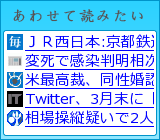ものを書くには「こんなことが世の中に向けて言いたい」ということがある程度たまってくることが必要で、そのエネルギーを書くエネルギーに変えることで書けるのですが、twitterにて小出しに主張(ここ)していると、「ガス抜き」というか,そのような状態になってblogを核エネルギーがたまらない,という印象です。去年からがくんと執筆のペースが落ちてしまいました。ストレスはためずにこまめに発散が良いのですが(夫婦喧嘩も),執筆はその逆の方が良いような気がします。
twitterのなかで、医師が経営、運営を学ばないというコメントがいくつかありました。
日本の場合医療機関の院長は医師である必要があるという縛り,一方で問題意識の高い医師が積極的に求める以外はマネジメントについて学ぶ機会がない、ということが関係あるかどうかはわかりませんが、多くの中小病院が経営難に陥っています(診療報酬の問題もあるのでしょうが)
米国の家庭医研修ではその研修中にPractice Management(診療所運営)と呼ばれる分野を必ずカバーすることが要求されています。
ACGME program requirement for family meidicine
の31ページ前後
全て抜き書きしておきます(個人的には,知らない間にManagement of Health Systemsと書き換えられていたのが興味深いです)
Management of Health Systems
must receive at least 100 hours of management and leadership instruction to include both the didactic and the practical settings.
This curriculum should prepare residents to assume leadership roles in their practices, their communities, and the profession of medicine. The residency must have specific strategies to demonstrate that residents have mastered these skills.
The FMC must be considered the primary site for teaching management and leadership skills, and should serve as an example on which residents may model their future practices.
Each resident must receive reports of individual and practice productivity, financial performance, patient satisfaction and clinical quality, at least quarterly, as well as the training needed to analyze these reports. Residents must attend regular monthly FMC business meetings with staff and faculty to discuss practice-related policies and procedures, business and service goals, and practice efficiency and quality.
They must participate in projects to improve the quality of care and service delivered to the FMC patient population.
The management curriculum should include current billing practices, designing and managing a budget, assessing practice staffing needs, the impact of new technologies on practice, determining value in the marketplace, assessing customer satisfaction, measurement of clinical quality, tort liability and risk management, office scheduling systems, computers in practice, alternative practice models, and employment law and procedures. Residents should also learn principles of public relations, media training, and personnel management.
The leadership curriculum should include training to provide leadership for a clinical practice, a hospital medical staff, professional organizations, and community leadership skills to advocate for the public health.
さらに具体的には、研修中に学ぶことの概要として
Recommended Curriculum Guidelines for Family Medicine Residents
に公開されていますがその中に、
Management of Health Systems (Practice Management)
という分野があります。
同様に診療所運営ですが、医療の質管理の側面は
Practice-based Learning and Improvementという領域として別に設定されています(前述の2つのリンク参照)
Recommended Curriculum Guidelines for Family Medicine Residentsの方は,そのときの最新のものが日本語版として翻訳されています(その後英語の方は順次改訂されているので注意)
日本でも後期研修としての家庭医育成プログラムは数が増えてきましたが、
その認定要件の元となる、特定非営利活動法人 日本家庭医療学会 認定 後期研修プログラム(バージョン1.0)(PDFファイル)のなかでも、全ての医師が備える能力として、(3)組織・制度・運営に関する能力のなかで定義されています。
もちろん「知っていること」と「できること」は別で、特にマネジメント,リーダーシップなどの領域は、実際にリーダーや経営者になって実践してみないと絶対にわからないこと,学べないことがあるのは事実ですが、事前に知識や、起こりうる問題に対する解決法を想定して望むのとそうでないのとは雲泥の差があります。
こういった領域はビジネスや組織開発など多領域にまたがるため、同じ内容のものが様々な名前で呼ばれています。ビジネススキル,と呼ばれる場合もあり、以前,医師もそのようなスキルを学ぶ必要がある、という趣旨の執筆をさせて頂きました。
2008/12/03 JIM 特集 医師のためのビジネス・スキル
ここで,読めるようにしてあります。
改めてprogram requirementを読み返して、気づいたことがいくつかありますので、別エントリーにて。











0 コメント:
コメントを投稿